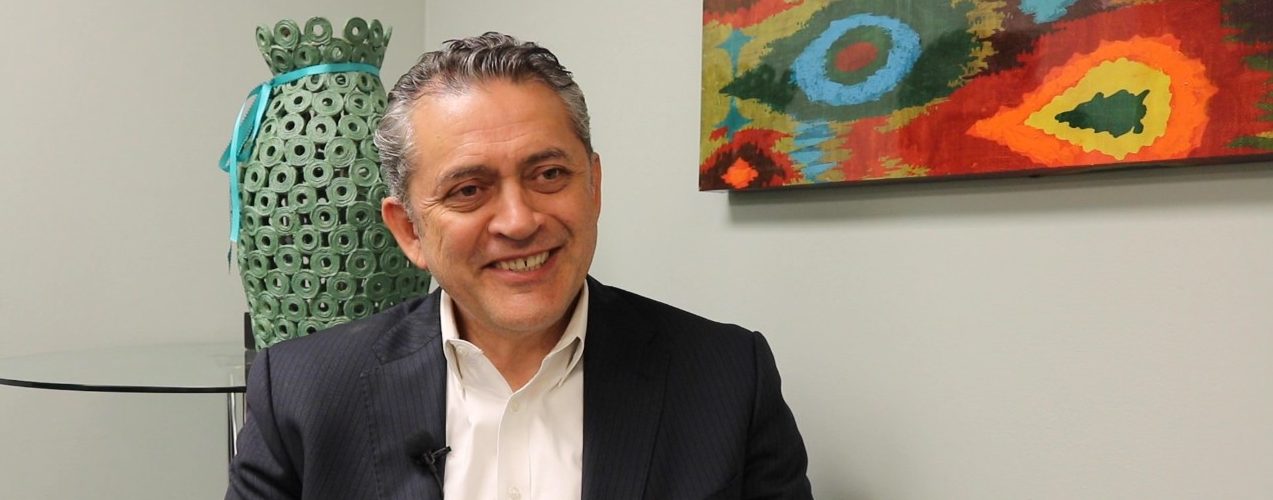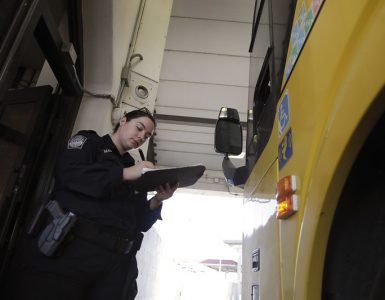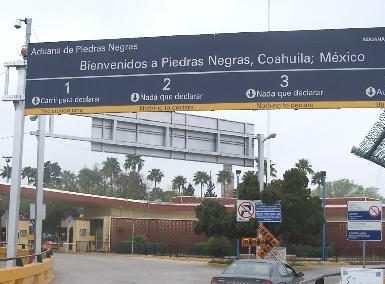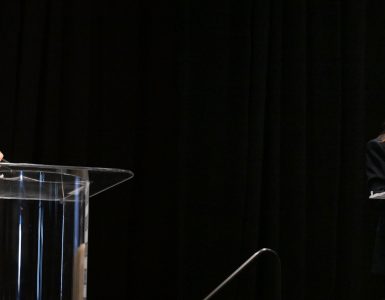Luis Ramirez, president of Ramirez Advisors Inter-National, is an advisor to the Arizona-Mexico Commission. Ramirez has served with the Arizona-Mexico Commission in some capacity for more than 30 years, dedicated to creating cross-border solutions and strengthening ties within the Arizona-Sonora region.
Question: How did you get involved with the Arizona-Mexico Commission?
Answer: I was a student at the University of Arizona, back in 1986, and the Arizona-Mexico Commission at the time was looking for, I’m trying to remember what the committee was, I think it was the economic development committee, was looking for some information and some updates on the status of the maquiladora industry in Nogales. So at the University of Arizona, with then director Marcario Saldate and Bill Borland, we created University research associates. It was a group of students at the UA commissioned to conduct a number of empirical studies, like literally going down to Nogales, conducting surveys and reporting back to the Commission and the governor. So I started with the Commission in 1986/87 as a student, providing information through the UA back to the AMC.
Q: How would you say working with the AMC has developed the Arizona-Mexico relationship?
A: I think the AMC has been tremendously influential both with me personally and professionally. I should say that I started out as a student, I eventually became a member of the board of directors, became the head of a strategic planning for the AMC. I eventually stepped off of the board and became an advisor to the Arizona-Mexico Commission to the office of the governor. But even back when I was on the board, we did a number of initiatives through the Arizona-Mexico Commission that have had a tremendous impact, not just at that moment but continue to have an impact on the Arizona-Mexico relationship and the Arizona-Mexico region. We fought against certain initiatives, we fought for others and supported other initiatives. For instance, we were involved in, I think it was 1994, the State Department announced certain budget cutbacks that threaten the closing of the U.S. consulate in Hermosillo. So we fought against that, but not only were we successful in maintaining the consulate, but because of those efforts the new consulate was opened up in Nogales. Eventually that consulate has become a consulate general, so we have two consulate generals in Sonora and it is the only state in Mexico that has two consulates. Considering that there are only 9 consulates plus the embassy in the entire country and two of those principal consulate generals are in Sonora, much of that is due to the Arizona-Mexico Commission. I think part of the trick is that it’s not the AMC by itself but the fact it becomes a leader driving initiatives that require the involvement of hundreds of people in many instances at the local level, at the border, on the Mexican side and even beyond.
Q: How has the AMC developed over the years?
A: It’s an incredible institution because it has morphed with the times. At times it was more just a relationship building, which was essential. When you think about 60 year history, you have to think back to how international relations were considered back then. International relationships didn’t exist, NAFTA didn’t exist, trade agreements didn’t exist, imports and exports were not a major deal. The AMC was then in the process of building that relationship between Arizona and Sonora, primarily in the beginning. But I think the AMC has now morphed and it’s different in size depending on the issues and the political, economic and social environment at the time over these decades. But today it is one of the principal business, economic development, investment promotion [organizations] in addition to the relationship building that is required for Arizona to maintain a very strong relationship with Mexico. Even more so, while our principal partner in this is Sonora, the AMC is really more about a gateway institution for all of Mexico. Because of the NAFTA agreement and the USMCA, which usmcanow.org is making sure everyone is pushing for ratification, we are also finding the linkages of the relationship with Canada. So you have Canadian companies that are investing in Arizona are tapping into the Mexican market and using Arizona as the reach out for all of North America. AMC has been the principal vehicle in conveying that, and enabling that to happen for companies, for communities, promote tourism, promote manufacturing, promote investment, and some of the more traditional business sectors in our binational region, which are the agribusiness, international logistics, all those issues, AMC facilitates that process.
Q: Why is the USMCA important to Arizona?
A: The easiest way to understand the [importance of] USMCA is the relationship that Arizona has with Mexico and Canada and the trade relationship. There are approximately 228,000 jobs in Arizona that are dependent on a trade relationship. But beyond that we have thousands and thousands of tourists that are coming from Canada and all over Mexico to Arizona. And more and more we see the Arizona tourism going to Mexico and Canada, so it truly is a two way relationship. We were talking with a Calgary-based law firm that has season tickets to the Arizona Cardinals here in Glendale and they give their tickets to their clients in Alberta to come watch Cardinals games in Arizona. I found that fascinating, that kind of activity, and we don’t even know these things are happening. So the relationship between Arizona and our neighbors to the North and South has truly evolved. More importantly perhaps is how Arizona has really emerged under the leadership of Governor Ducey to become this true ambassador of this U.S.-Mexico relationship. It’s his vision, it’s his energy and the direction that he’s given to all the agencies and it’s contagious. It’s not just what he’s doing but he’s bringing all these people with him, all these businesses along with him, and Arizona continues to be the model of how to build that relationship with Mexico.
Q: What would you say is a recent accomplishment that AMC should feel proud of?
A: I already mentioned the consulates, which I think we’re underestimating the value that has and the significance it has for the entire region. But the Arizona-Mexico Commission has been involved in promoting our border infrastructure from creating back in 2011 “Vision 2015,” that by 2015 we more than double our three port capacity, our port of entries, and we finished that about a year and a half early. We continue to build the relationship with other states in Mexico. We’re building our relationship with other parts of Mexico, with Sinaloa, Baja, California, Chihuahua, Mexico City. We’ve conducted a number of trade missions to Mexico City and Estado de Mexico and the city of Toluca. The accomplishments are so many, on education, on culture, on agribusinesses. The timing couldn’t have been more perfect, on November of last year we had the Summit in Hermosillo and from there Governor Ducey and a very small delegation flew to Mexico City for the inauguration of President Andrés Manuel López Obrador. Governor Ducey and Governor Pavlovich just signed a bilateral agreement to help the flow of cattle and the inspection process the cattle has to go through at the Arizona-Sonora border in order for the cattle to go back and forth depending on the size of cattle, if they go for feed or if they go for sale. We land in Mexico City and meet with then the formerly designated ambassador of Mexico to the United States, turns out her brother lives in Tucson and he’s in the cattle business and he takes cattle across the border. You couldn’t have planned this any better, literally 24 hours before the two governors signed an agreement to help facilitate the flow of cattle. And by the way, cattle is one of the most important sectors of agribusiness in the Arizona-Sonora region. The next day we’re telling the Mexican federal government of this accomplishment that happened at the state level. The ambassador takes that and goes, “Wow, this is exactly the type of thing we’re looking to expand on not only in Arizona-Sonora but border-wide. That’s just another one of the accomplishments, and there are so many, but that one just sticks out in my mind because it was literally 24 hours later it was having a binational difference.
















Add comment